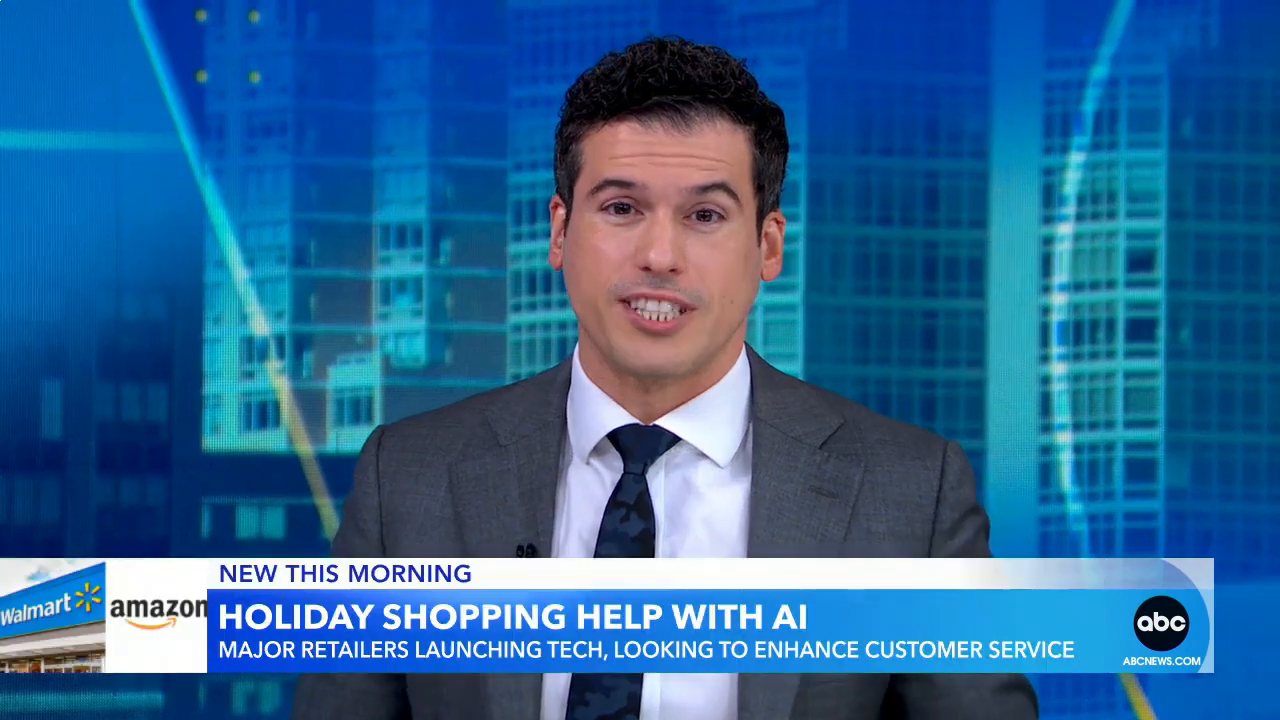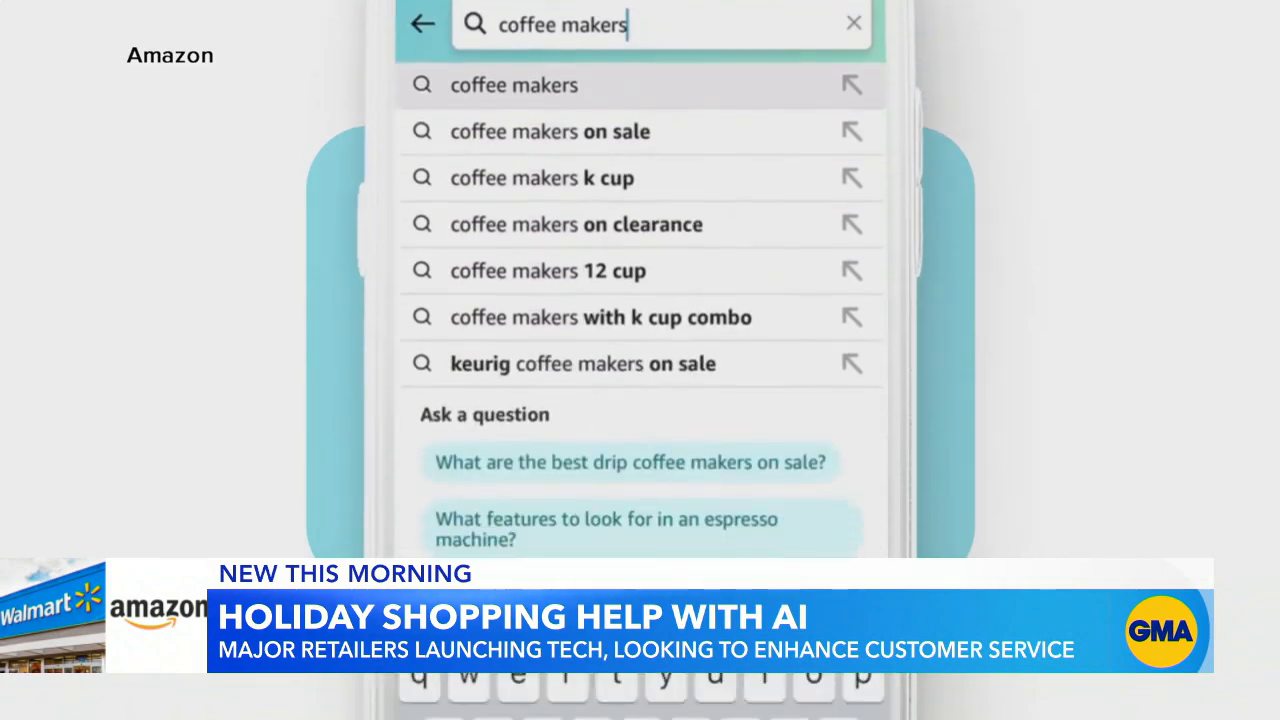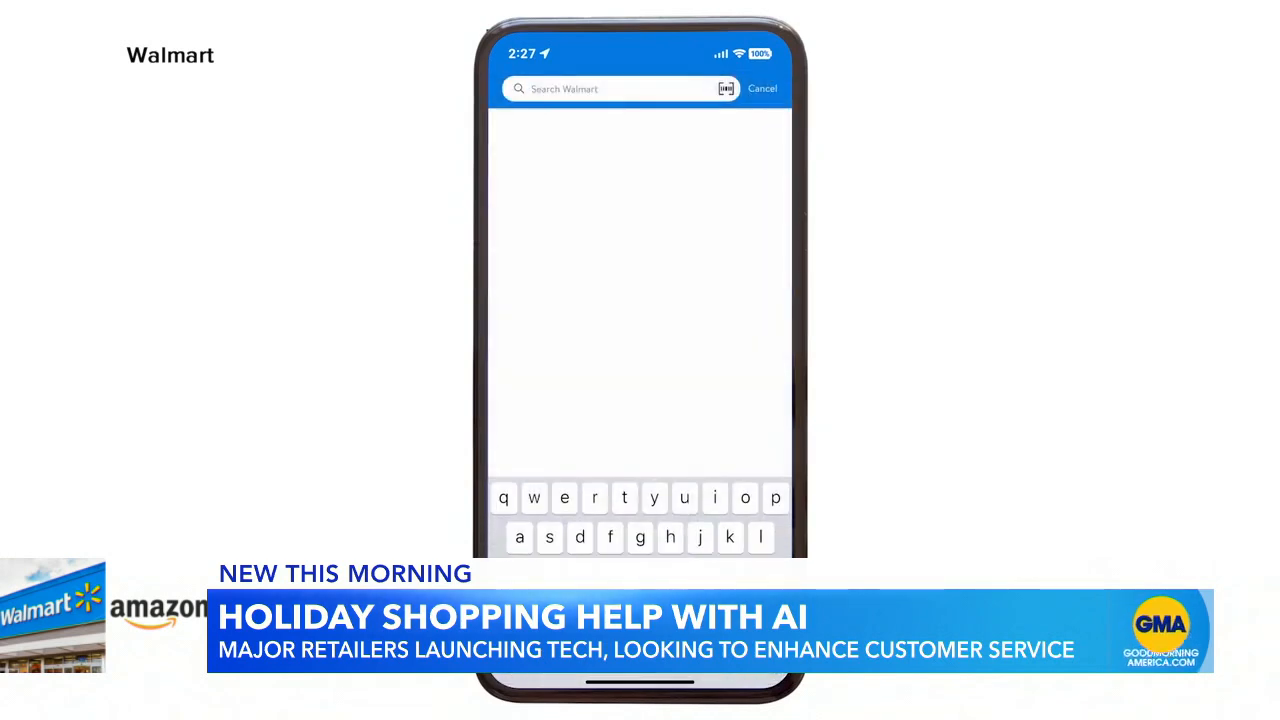The future of shopping: Exploring AI advancements in the retail wars
The retail industry is undergoing a seismic shift as the battle for customer loyalty heats up ahead of the Black Friday and holiday shopping season. Major players like Amazon, Walmart, and Sam’s Club are at the forefront of what is being dubbed the "retail wars,” introducing groundbreaking artificial intelligence (AI) technologies to transform the shopping experience. This shift is being driven by the need for retailers to offer greater convenience, personalization, and efficiency, ushering in a new era of AI-powered shopping.
Retail wars: The ultimate battle for customer loyalty

The "retail war" heats up as major retailers embrace AI technology ahead of Black Friday
Following the massive October mega sales, consumers are now preparing for the frenzy that is Black Friday. But this year, more than discounts and doorbuster deals are in the spotlight. The integration of artificial intelligence into retail operations is taking center stage, with companies leveraging AI to elevate their offerings and meet evolving customer expectations.
ABC News reporter Zohreen Shah explains how giants like Amazon and Walmart are reshaping retail through advanced AI tools, promising not just better deals but smarter, more personalized shopping experiences. With millions of shoppers vying for the best bargains online and in-store, companies are looking to AI as the ultimate competitive weapon to dominate the market.
Amazon's AI innovations: Introducing "Rufus," the chatbot

Amazon introduces Rufus, designed to assist bargain-hunting customers
Amazon is leading the charge in AI-powered retail with its brand-new chatbot, Rufus. Designed to help bargain hunters, Rufus acts as a virtual shopping assistant, answering questions, guiding users to the best deals, and simplifying the purchase process. According to Will Knight, a senior reporter at Wired, Rufus is part of Amazon’s broader effort to refine its AI capabilities and potentially revolutionize the way customers shop.
Beyond Rufus, Amazon is reportedly developing even more ambitious AI solutions for the near future. These innovations include predictive shopping technology, which could automatically add items to customers' carts based on their preferences and past behavior. In fact, the ultimate vision may involve products being shipped directly to customers before they even place an order.
This level of innovation underscores the advantage that companies like Amazon, which possess vast amounts of data, have in shaping the future of AI-driven retail. By leveraging their data insights, Amazon seeks to stay ahead in the competitive landscape while redefining convenience for shoppers.
Walmart steps into the AI game with personalized experiences

Walmart launches a personalized AI assistant for tailored shopping experiences
Not to be outdone, Walmart has recently rolled out its own AI-powered tool: a personalized shopping assistant. Unlike traditional shopping experiences, this tool recognizes individual customers' preferences when they log on to Walmart’s website. In fact, starting next year, it will go a step further by creating custom homepages tailored specifically to each shopper.
Walmart's use of AI aims to make shopping easier and more convenient. Whether customers are exploring product recommendations or finalizing their holiday shopping lists, the platform ensures that their needs are met with precision. By investing heavily in AI technology, Walmart is clearly intent on positioning itself as a leader in the next generation of commerce.
In a statement, Walmart emphasized how these tools provide real advantages for customers by helping them find exactly what they want or receiving informed, AI-powered suggestions when they’re uncertain about a purchase. For the company, this also represents a strategic step to remain competitive in an increasingly technology-driven retail landscape.
Sam's Club introduces AI checkout systems

Sam’s Club uses AI to streamline the checkout process
Walmart's subsidiary, Sam's Club, is also embracing AI but in a unique way. Select Sam’s Club stores are testing AI systems designed to speed up the checkout process. Here’s how it works: AI technology takes a photo of the shopper's cart as they prepare to leave the store, matching the selected items to the customer's receipt. If the system confirms that everything aligns, the customer can pass through the exit without delays.
Sam’s Club highlights that this innovation not only improves efficiency but also minimizes the need for employees to manage checkout lines, freeing up staff for other tasks. The end goal is to make shopping faster, smoother, and more satisfying for customers.
AI's broader implications for retail

AI’s impact on retail extends beyond convenience; it also drives profitability
The integration of AI into retail goes beyond just improving customer experiences. As Wired’s Will Knight explains, even a marginal improvement in efficiency—whether through AI-powered recommendations or faster shopping experiences—can translate into significant profits. For companies competing in the $27 trillion global retail sector, every small advantage counts.
AI technology also provides businesses with invaluable data. Retailers can better understand consumer behavior, preferences, and shopping patterns, enabling them to refine their methods further. However, Knight notes that not every company will have equal access to these opportunities. Those with massive data reserves, such as Amazon and Walmart, are poised to reap the greatest benefits in the AI era.
The holiday season: A proving ground for AI advancements

Holiday shopping will test the effectiveness of these AI advancements
The upcoming holiday season is set to be a critical testing period for these AI innovations. As millions of shoppers flood retail websites and stores in search of the perfect gifts, the effectiveness of tools like Amazon’s Rufus, Walmart’s personalized assistant, and Sam’s Club’s AI checkout systems will be put to the test.
Retailers have a lot at stake, and their ability to deliver seamless and efficient experiences could determine customer loyalty going forward. For shoppers, these advancements could make the hectic holiday season far less stressful, providing much-needed support for creating, finalizing, and managing holiday lists.
Conclusion: Embracing the future of shopping
In this rapidly evolving landscape, the adoption of AI technologies by Amazon, Walmart, and Sam’s Club signals the dawn of a new era in retail. By enhancing personalization, convenience, and efficiency, these tools not only promise to make shopping easier for customers but also strengthen the competitive positions of the companies implementing them.
As we gear up for the holiday season, the success of these AI-backed innovations will likely shape the future trajectory of the industry. Will shoppers come to rely on AI tools for smoother experiences? And will retailers maintain the human touch that keeps customers returning? One thing is for sure: the retail wars are far from over, and artificial intelligence is just beginning to show its transformative potential.
For consumers, the incorporation of AI might be the answer to the perennial question of "Deal or No Deal." With personalization, speed, and predictive shopping now in the mix, there’s much to look forward to in this brave new world.
